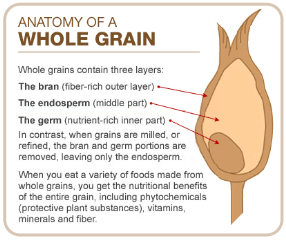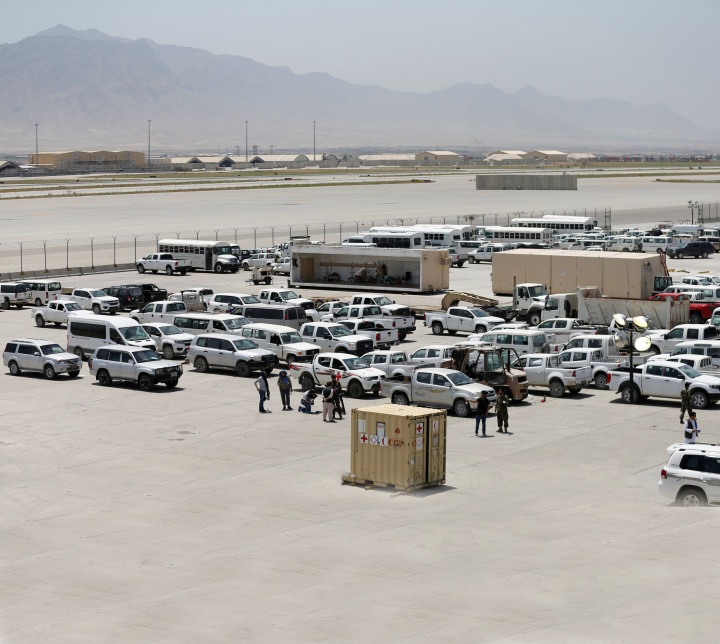As in the Days of Noah: Warnings for Today
“Some things never seem to change. This article, “As in the Days of Noah: Warnings for Today,” explains how the violence and evil we see today is nothing new.
The people of Noah’s day were punished for how they were living, and many of these same things are still happening today.
We hope this article helps you recognize the lifestyles and attitudes that God does, and does not, want us to have.”
“Jesus Christ said that end-time events would be like those during the days of Noah. What were those conditions like, and why should we be concerned?

Discussing the time near His return to earth, Jesus declared, “As it was in the days of Noah, so it will be also in the days of the Son of Man: They ate, they drank, they married wives, they were given in marriage, until the day that Noah entered the ark, and the flood came and destroyed them all” (Luke 17:26-27).
It appears people thought they were living normal lives during the time Noah lived, just before the Flood. They were oblivious to the impending disaster. So what was Jesus talking about?
Who was Noah?
The Bible says that “Noah was a just man, perfect in his generations” and that he “walked with God” (Genesis 6:9). Noah had three sons, who were named Shem, Ham and Japheth.
When God brought a universal flood upon the earth to destroy all mankind, only Noah and his family were spared. Peter states that God “did not spare the ancient world, but saved Noah, one of eight people, a preacher of righteousness, bringing in the flood on the world of the ungodly” (2 Peter 2:5).
These eight people included Noah, his wife, their three sons and their sons’ wives (Genesis 6:18).
Widespread violence in the days of Noah
Since Jesus said that the last days would parallel the society of Noah’s day, we can look further into God’s Word to learn what He meant. The book of Genesis explains what conditions were like at that time.
Not long after God placed human beings on earth, mankind refused to follow the good and beneficial instructions of God that would have led to stable, happy lives. Instead, they quickly headed toward self-destruction.
Following Adam and Eve’s example of rejecting God’s instructions, humanity became increasingly hostile and corrupt. By the time of Noah, “the LORD saw that the wickedness of man was great in the earth, and that every intent of the thoughts of his heart was only evil continually” (Genesis 6:5).
Because of this, God said that He was “sorry” that He had created mankind (verse 6) and told Noah, “The end of all flesh has come before Me, for the earth is filled with violence through them; and behold, I will destroy them with the earth” (verse 13).
God’s grieving was not sorrow for making a mistake. God doesn’t make mistakes. God gave His human creation the freedom to choose between right and wrong (Proverbs 1:29-31), and He was grieved in His heart to see how far humanity had fallen from what He originally intended.
What was the meaning of Jesus’ reference to the days of Noah?
Jesus referred to the days of Noah when He was describing what conditions would be like just prior to His return. His point was that people would be unaware of His return to judge mankind. Sadly, the vast majority of the earth’s inhabitants will be living ungodly lives in a world filled with violence when this monumental event occurs.
In His Olivet Discourse (Prophecy) found in Matthew 24, Mark 13 and Luke 21, Jesus described what would be happening on earth before His second coming. The signs of the end of this age include lawlessness abounding, the gospel of the Kingdom being preached and Jerusalem being surrounded by armies (Matthew 24:12-14; Luke 21:20). For further study of Christ’s teaching about the signs of His return, see “Understanding the Olivet Prophecy.”
Noah lived in perilous times
Continued at: https://lifehopeandtruth.com/prophecy/end-times/as-in-the-days-of-noah/
(Readers, did you catch that? Our Creator was sorry that he made us!! Isn’t that a shameful thing? We need to make Him proud of us!)
________
If God Knows, Why Pray?
“Matthew 6:8
“Therefore do not be like them. For your Father knows the things you have need of before you ask Him.”
When we pray, it’s important to have in mind who we are praying to. Our great Creator God knows everything. He can read our thoughts. He knows exactly what we think we need and exactly what we truly need. So telling God what we need is not about trying to let Him know something He doesn’t know, or even reminding Him of something. It’s about letting Him know that we realize we depend on Him. It’s about showing thankfulness for what He has given to us and having a humble expectation about what He will give us.
Prayer is an exercise in trying to apply what we know of God’s will. If we understand He wants us and others to have health and to prosper, but that He also and even more importantly wants us to grow in godly character and to prepare for His Kingdom, this will shape our prayers and requests.
The act of praying for God’s will can help us to better understand His will and His eternal plan. And prayer shows God our hearts. This is the kind of communication that builds the relationship God desires to have with us.
For more about this relationship, see “Relationship With God.”” From: https://lifehopeandtruth.com/bible/blog/if-god-knows-why-pray/?
________
Many Christians and Jews are celebrating The Feast of Tabernacles right now:
“The annual festival, the seven-day Feast of Tabernacles (Leviticus 23:33-36), was celebrated by the ancient Israelites with makeshift shelters, recalling their transitory dwelling when they left Egypt and made their way to the Promised Land.
Also called the Feast of Ingathering (Exodus 23:16;Exodus 34:22), this festival celebrated the late summer and early fall harvest in the land of Israel. In a spiritual sense it represents the great ingathering of God's spiritual harvest of mankind following Christ's return. Indeed, this feast looks forward to the time of the earthly rule of Jesus Christ.
Jesus Himself observed this feast during His ministry and told others to do so as well (John 7:8-14). The Bible even states that instead of being done away, this feast will be observed by the gentile (non-Israelite) nations during Christ's reign over the earth (Zechariah 14:9, Zechariah 14:16-18).
Scripture tells us that the resurrected saints will reign with Christ. Revelation 20:4 says: "And I saw thrones, and they sat on them, and judgment was committed to them . . . And they lived and reigned with Christ for a thousand years" (compare Daniel 7:27).
The wonderful truth is that when Christ returns, true Christians from this age will rule under Him as kings and priests (Revelation 5:10; Revelation 20:6)—leading the rest of the world into God's ways."
The Eighth Day
Immediately following the seven-day Feast of Tabernacles is another Holy Day or Sabbath—referred to in Scripture simply as “the eighth day” (Leviticus 23:36, Leviticus 23:39). This day pictures the most joyful of all events yet to take place in God’s great plan.
We should consider that the celebration of the ingathering of all humanity is not complete with the 1,000-year reign of Christ. For what about all those who died in this age who were not called as part of God’s firstfruits? There will yet remain billions of people from this age who are not saved.
So are they forever lost?" Excerpts from and more at: https://www.ucg.org/beyond-today/beyond-today-magazine/the-bibles-prophetic-festivals
_______
There is a jingle that goes: "The whiter the bread, the sooner you're dead!”
“Bread has been called the "staff of life." Unfortunately these days most folks consume grain in its refined state and this staple contains little to no nutritive properties and cannot support animal or human life.
 Wheat is the key ingredient in the American diet. But after being milled, it is seldom utilized in its whole form with its components intact. Invariably, when we eat wheat, we get it in the form of bread, pies, cakes, cookies, biscuits, spaghetti, cream of wheat, cereals, and other forms that have been treated, heated, fractioned, and fragmented until it is next to impossible to recognize it for what it was originally.
Wheat is the key ingredient in the American diet. But after being milled, it is seldom utilized in its whole form with its components intact. Invariably, when we eat wheat, we get it in the form of bread, pies, cakes, cookies, biscuits, spaghetti, cream of wheat, cereals, and other forms that have been treated, heated, fractioned, and fragmented until it is next to impossible to recognize it for what it was originally.
A refined grain, or its product, is made by processing a natural, whole grain so that some or most of the nutrients are lost. Almost all grain products have been refined in some way or another.
White rice, cream of wheat, cookies, and bowls of snap-crackle-and-pop each morning are all examples of refined grain products.
Why are Refined Grain Products Harmful?
REFINED GRAINS AND THEIR FOOD PRODUCTS ARE SUBSTANDARD FOODS FOR SEVERAL REASONS:
- They are excessively starchy and high in gluten.
- They are practically devoid of natural fiber.
- There can be up to approximately 25 different chemicals that are added to refined grains and breads products.
- Grains are fumigated.
- Bleaching chemicals are used.
- Artificial colorings and flavorings are used.
- They are nutritionally imbalanced.
Because refined grain products are nutritionally imbalanced, they are responsible for contributing to several degenerative diseases. Calcium leaching from the bones and teeth occurs because of the altered phosphorous-calcium balance in these products. Sugar and refined grain products are primarily responsible for tooth decay in this country, as well as being the major cause of brittle bones in the elderly.
A Loaf of Chemicals
The making of bread and flour products took a real turn for the worse at the end of World War 2. Bakeries in America began using large amounts of chemicals, additives, bleaches, and preservatives.
 The millers discovered they could make the flour very white by bleaching it. Other chemical oxidizers are added to bleach and "mature" the flour, such as nitrogen dioxide and azocarbonamide. Are these chemicals dangerous? Well, Germany banned all such oxidizers back in 1958, almost 40 years ago!
The millers discovered they could make the flour very white by bleaching it. Other chemical oxidizers are added to bleach and "mature" the flour, such as nitrogen dioxide and azocarbonamide. Are these chemicals dangerous? Well, Germany banned all such oxidizers back in 1958, almost 40 years ago!
The next step in the chemicalization of bread is to add chemical dough conditioners to the dough to enable the resulting bread to stay fresh and soft for a longer period, without getting stale while standing on grocers' shelves.
To give this softness and white-bread texture, mono- and diglycerides are added to the bread dough at the rate of about 1/4 pound per year per person consumption. This makes the bread more squeezable and fluffy. Nobody knows the effects on those that eat such additives.
Some of the chemicals used as dough conditioners are similar to the anti-freeze mix used for automobile radiators. One of the chemicals used as a dough conditioner is polyexy ethelyne monosterate. Workers in factories where this chemical is made have been known to develop skin rashes from the fumes. polyexy ethelyne monosterate is also used in making peanut butter, ice cream, candy, and salad dressings.
The average person eats about 100 pounds or so of commercial bread each year. Besides eating the refined flour, the average person also eats these toxic items in the grain products: 2 pounds of salt, 3 pounds of sugar, 2 pounds of skim milk powder, 2 pounds of yeast, 1 pound of enzyme-activator, 1/2 pound of sulfate, chloride, and bromate chemicals, and 1/4 pound of other food additives. When all of these chemicals and nonfoods are eaten together, a multi-toxic effect occurs that has never been thoroughly studied by scientists.
In Summary
The crux of the situation is that the shelf-life of products are far more important in our economy than the health and well-being of the people. If we are to lean on the "staff of life" for nutrition, we must identify the counterfeit refined grains from the real, whole grains.
In the US, the familiar white flour which is the result of modern refining process is 72% extraction. This means that it has lost 28% of the bulk of the wheat, including half or more of many of the crucial nutrients. So for optimum health, eliminate all refined flour products from your diet and use only whole grains.
8 Healthy Gluten Free Whole Grain Alternatives
- Amaranth
- Buckwheat
- Corn
- Millet
- Oats (*see below)
- Quinoa
- Rice
- Wild Rice
*Oats are inherently gluten-free, but are frequently contaminated with wheat during growing or processing. Several companies (Bob's Red Mill, Cream Hill Estates, GF Harvest (formerly Gluten Free Oats), Avena Foods (Only Oats), Legacy Valley (Montana Monster Munchies), and Gifts of Nature) currently offer pure, uncontaminated oats. Ask your physician if these oats are acceptable for you. Source:
http://wholegrainscouncil.org/...
From: https://www.foodmatters.com/article/why-refined-grains-are-harmful
_______
 “Our world is changing before our eyes, and in ways that are highly dangerous for the current world order and the United States in particular. You need to understand why.
“Our world is changing before our eyes, and in ways that are highly dangerous for the current world order and the United States in particular. You need to understand why.















